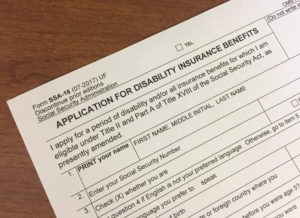
You can receive disability benefits if your deceased spouse was receiving disability benefits at the time of their death or if they worked and earned sufficient work credits for you to qualify. The disability attorneys with our law firm can help you determine if you are eligible. You may also be able to use your spouse’s work history to qualify for disability benefits if you suffer from an impairment but do not otherwise qualify.
You can learn more about your options for continuing to draw disability benefits after the death of your spouse during a free consultation. We understand you rely on these benefits to make ends meet and will help you receive benefits from the programs for which you may qualify.
Contact one of our area Social Security Disability lawyers today to learn more:
- Pittsburgh Social Security Disability Lawyer
- Erie Social Security Disability Lawyer
- Altoona Social Security Disability Lawyer
- Johnstown Social Security Disability Lawyer
- West Mifflin Social Security Disability Lawyer
- Plum Social Security Disability Lawyer
- New Castle Social Security Disability Lawyer
- Baldwin Social Security Disability Lawyer
- Allison Park Social Security Disability Lawyer
- Wilkinsburg Social Security Disability Lawyer
- Upper St. Clair Social Security Disability Lawyer
- Columbus Social Security Disability Lawyer
Which Programs Provide Benefits to Surviving Spouses?
The Social Security Administration (SSA) understands that many families depend on the income from Social Security Disability Insurance (SSDI) and other programs to pay their bills and make ends meet. When a qualifying family member passes away, the rest of the family loses access to these benefits, and it causes immense financial stress.
For this reason, they offer special benefits to these families. Known as survivors’ benefits, they base these monthly payments on the earnings and work history of the deceased spouse. These benefits provide much-needed income for many families.
Depending on your situation, survivors’ benefits will provide:
- Reduced benefits beginning when you reach age 60
- Full benefits once your reach full retirement age
- Benefits if you are disabled, over age 50, and your disability began within seven years of your spouse’s death or within seven years receiving survivor’s benefits
- Benefits if you are raising a child of the deceased under the age of 16
- Benefits if you are caring for a disabled child of the deceased.
Even if you decide to remarry, you sometimes may still qualify for survivors’ benefits based on your deceased spouse’s work record. This could be true if you are over age 60 – or over age 50 and disabled – when you remarry.
40+ years of experience from strong, knowledgeable, compassionate attorneys.
Start A Free EvaluationCan I Qualify for Disability Benefits on My Own?
If you suffer from a qualifying impairment under the SSA’s definitions and can produce medical proof of your disability, you may qualify for SSDI, even if you never worked or do not meet the work history requirements for monthly benefits.
To qualify for SSDI, you must earn a certain number of work credits, including some during the past decade before you suffered your injury or illness. In most cases, you cannot receive this type of benefit unless you have the proper number of work credits based on your age.
However, if your deceased spouse worked and paid into Social Security via their FICA employment taxes, you may be able to use their work history to qualify if you are over 50 years old. You will still need to meet the rest of the criteria on your own, however.
We know you’re hurting. We can help. Free case evaluations, home and hospital visits.
Contact Us Now For HelpShould I Discuss My Situation with a Disability Lawyer?
The rules surrounding survivors’ benefit qualifications are complex. It can be difficult to know if you meet the criteria or not. There are many more stipulations than we can possibly cover online, but our attorneys can determine which apply in your case and ensure you qualify before we begin work on your application.
You can apply for surviving spouse benefits directly with the SSA. However, the application process is not as simple as it looks. It often takes several months to get a response about your application for benefits, and most people receive a denial the first time, if your claim is for a disability benefit.
We Can Help You If the SSA Denied Your Benefits Claim
You should discuss your case with a member of our legal team if the SSA denied your application for benefits. A Social Security Disability attorney from our law firm can look over your initial application to determine why the SSA denied your claim. We can tell you what you need to do and help you appeal the SSA’s decision.
We can help you build your appeal, file it with the SSA, and represent you throughout the appeal process.
We Can Help If the SSA Denied Your Appeal
A lawyer from our firm can continue to the reconsideration stage if the SSA denied your appeal for benefits. Here, a new SSA representative will handle your case and determine whether you are eligible for survivors’ benefits. If the case fails in the reconsideration stage, we can proceed to the next stage.
We Can Represent You in Front of an Administrative Law Judge
Once we secure a hearing with an Administrative Law Judge (ALJ), we will represent your interests and help you secure benefits. Meetings with ALJs can be done by phone, video conference, or in person.
We represent clients in Pittsburgh and surrounding areas. Our legal team at the Pittsburgh office, located at 800 Waterfront Drive, is ready to take on your case.
You need an attorney with the experience and dedication to give your case the care it deserves.
Start A Free EvaluationHow Can I Learn More About My Options for Disability Benefits After My Spouse Passes Away?
When your loved one passes away, you have an obligation to report their death to the SSA. This will stop the benefits they receive. For this reason, it is important to give us a call as soon as possible so we can apply for survivors’ benefits or SSDI on your behalf.
Call (412) 661-1400 today to reach a disability attorney at Berger and Green.











